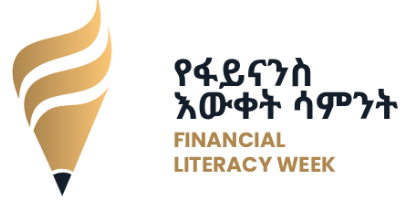1 What are the three areas the NBE has involved in relation to financial Consumer Protection and Financial Education?
To promote transparency and protect consumers, NBE acts across three pillars:
- Supervision & Regulation of Financial Consumer Protection.
- Complaints Handling Services for financial consumers.
- Financial Consumer Education and awareness programs.
2 What is financial consumer protection?
Financial Consumer Protection (FCP) encompasses laws, directives, supervision, and measures that ensure fair, transparent, and responsible treatment of financial consumers in their use of financial products and services and in their interactions with providers.
3 What are NBE’s objectives in relation to financial consumer protection?
- Build consumers’ trust and confidence in the financial system.
- Protect financial consumers’ interests.
- Ensure fair treatment across the entire customer lifecycle.
- Promote transparency so consumers can make informed decisions.
- Foster professional market conduct in the sector.
- Enhance financial literacy of adults, households, and MSMEs.
4 Why does NBE pursue consumer protection requirements?
To address market misconducts that erode trust, create exclusion, and threaten stability—such as aggressive selling, misleading advertising, abusive collections, unsuitable products, undue charges, data misuse, ineffective disclosure, failed transactions, unfair terms, and poor transparency.
5 What are the differences between Consumer Protection Supervision versus prudential supervision?
| Perspective | Prudential Supervision | Market Conduct (CP) Supervision |
|---|---|---|
| Focus | Safety & soundness of institutions | Consumers’ interests & outcomes |
| Goal | Sector stability; inclusion | Fair treatment; responsible conduct |
| Tools | Off-site & on-site exams | Prudential tools + mystery shopping & behavioral research |
| Scope | Institution/sector-specific | Cross-cutting across providers & channels |
| Skills | Finance, statistics, risk | Qualitative analytics, research, comms |
| Analyses | Financial & operational metrics | Disclosure, product design, redress, complaints data |
6 Who is a financial consumer?
Under NBE’s directives, financial consumers include individuals, MSMEs, companies, and other legal persons. Given power imbalances, the primary focus is on individuals and MSMEs.
7 What are the rights and responsibilities of a Financial Consumer?
Core Rights: to be informed; to choose; to fair treatment; to privacy; to consumer education; and to redress.
Core Responsibilities: knowledge & understanding; meet obligations; protect instruments & data; provide accurate information; report unethical practices/fraud/errors.
8 How can I file a complaint to the NBE?
- Contact your provider first: give them a chance to resolve the issue. NBE reviews only if unresolved within 10 business days.
- Then submit to FCPED if you’re unsatisfied or no response within 10 business days.
- Provide documents: completed form, provider’s final response (if any), call records, statements (if applicable), agreements, and any related documents.
9 What channels and addresses can I use to file a complaint?
- Email: complaintoffice@nbe.gov.et
- Hotline: 6230
- In person: NBE’s FCPED office
- Mail: P.O. Box 5550
- Address: Sudan Street, Addis Ababa, Ethiopia
10 In what conditions the NBE can reject my applications?
- Incomplete documents or requirements not met.
- Case already resolved by NBE.
- Outside NBE’s mandate.
- Already resolved by courts.
- Currently under court process.
11 Which products could be the subject of a complaint?
- Mobile money / mobile banking / ATM transactions
- Savings, fixed-term deposit, and current accounts
- Credit or consumer loans; credit card accounts
- Lease agreements
- Any other NBE-approved financial product/service
12 What are potential financial complaint issues?
- Unauthorized transactions, failed/partial transfers, or ATM errors.
- Hidden fees, undisclosed charges, or incorrect debits.
- Mis-selling of products, unsuitable terms, or misleading ads.
- Abusive collection practices or unfair contract terms.
- Data privacy breaches or misuse of personal information.
- Delays or lack of response in complaint handling.
13 What does financial literacy, financial education and financial capability mean?
Financial literacy is the knowledge of key concepts (budgeting, saving, credit, risk, digital finance). Financial education is the process of building that knowledge and skills through programs and resources. Financial capability is the ability to apply knowledge and behaviors to make sound decisions and use products effectively.
14 Why is financial literacy important for any jurisdiction?
- Improves household resilience and informed decision‑making.
- Supports inclusion and responsible product uptake.
- Reduces vulnerability to fraud and over‑indebtedness.
- Strengthens trust and stability in the financial system.
15 What is the role of NBE with regard to financial literacy?
NBE sets strategic direction, coordinates stakeholders, and develops resources (e.g., National Financial Education Strategy) to enhance public knowledge and safe usage of financial services, with emphasis on vulnerable groups and MSMEs.
16 What are NBE’s Financial Literacy Resources (books, websites, or educational programs)?
- Guides and primers on budgeting, saving, credit, and digital payments.
- Public awareness campaigns and workshops via FCPED.
- Curricula and toolkits for schools, MSMEs, and households.
- Online resources and videos linked from nbe.gov.et/fcpe.
17 How do I have access to NBE's consumer protection and financial education website or a relevant online resource?
Visit nbe.gov.et/fcpe for your rights, responsibilities, complaint submission guidance, and financial education materials. You can also use the hotline (6230) or email complaintoffice@nbe.gov.et for assistance.

